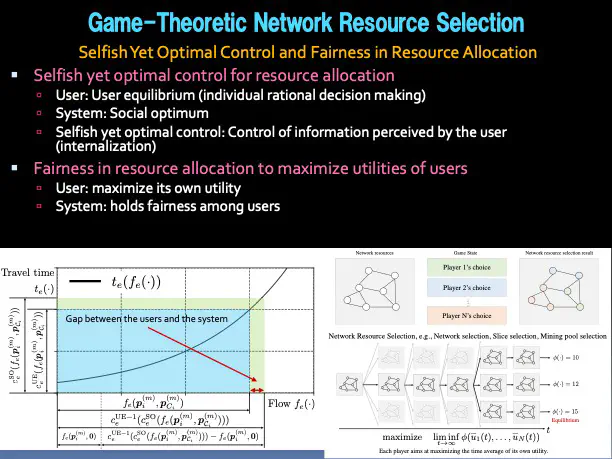Game-Theoretic Network Resource Selection with Long-term Sustainability

Selfish decision making by individual rational players cannot always result in social optimum. This is because there is a gap between the objective function of individual players and that of the system. For instance, even if each player takes a designated (rational) route received from a car navigation system, the time to reach the destination is slower than expected due to the congestion caused by the rational route choices. In such a situation, traffic congestion can be alleviated by providing traffic information to the car navigation system as so to avoid the congestion. Based on this idea, this research aims to establish a concept of selfish yet optimal routing, which results in the optimal routing even if every player takes a rational action, by controlling the information perceived by individual players, i.e., internalizing the externalities into the traffic information. In addition to the solution optimality, long-term sustainable systems require fairness among all players. Each player aims at rationally maximizing the time average of its own utility from the viewpoint of the long-term strategy. Since the resources occupied by one player affect other player’s choices, it is necessary to design an incentive that maximizes the utility of each player and ensures fairness among all players. In this research, we plan to formulate the network resource selection problem as a repeated stochastic game and design the incentives to meet the above constraints. In addition, we also plan to propose a solution to use a Lyapunov optimization algorithm and then analyze its characteristics.